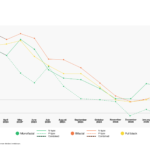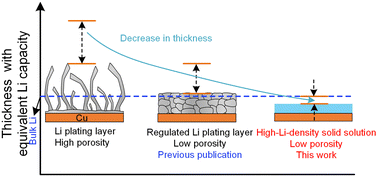What are Property Taxes and How Do They Work?
Property taxes are costs that support your local government and are paid each year. Find out how property taxes work and how they’re calculated. The post What are Property Taxes and How Do They Work? appeared first on Redfin | Real Estate Tips for Home Buying, Selling & More.


As a homeowner, one ongoing expense you’ll need to account for is property taxes. You’ll pay these taxes each year as long as you own your property. But what exactly are property taxes, and how do they work?
In this Redfin article, we’ll cover what property taxes are, what they’re used for, and how they’re calculated. Whether you’re in the process of buying a home in Pittsburgh, PA, or a condo in Washington, DC, here’s everything you need to know about property taxes.
Key takeaways
- Property taxes are based on your home’s value and its location.
- These taxes support the local government and are used for infrastructure, schools, and other systems.
- Property tax amounts may change every year based on local tax laws and your home’s value.
What are property taxes?
Property taxes are costs charged by your local government, like state, county, municipality, or township. They are based on the “real property” you own, which is your land and any structures on it, like your home. Typically, the more valuable your property is, the more you’ll owe in property taxes.
How do property taxes work?
Property taxes support local government operations and critical infrastructure like roads, water, sewer systems, and schools. They’re determined by local and state governments and typically change each year.
Your home’s value is usually reevaluated each year, in some places it may be every few years, to calculate how much you owe. It’s common for your property tax bill to change from year to year.

How are property values determined?
To calculate property taxes, the county assessor first must determine the market value of your home. They use one or more of the following methods.
- Sales comparison method: The assessor reviews the sales prices of similar homes in your area to value your property, and adjusts based on any renovations and other factors specific to the home.
- Cost method: This method estimates the cost to rebuild your home using current labor and material prices, then adjusts for depreciation.
- Income method: The assessor evaluates how much you could potentially earn from renting the property, factoring in the costs of insurance, taxes, maintenance, and property management.
After determining the home’s market value, the assessor applies an assessment rate to calculate the portion of value that is taxable. This is rate varies by tax jurisdiction.
How are property taxes calculated?
Once the taxable value is determined, the local government deducts any qualifying exemptions and then applies the millage rate (also known as the mill rate or mill levy).
Deduct any qualifying exemptions
Some exemptions can reduce your property tax bill:
Agricultural exemption: Your local government may offer exemptions if you use your home for agricultural purposes.
Homestead exemption: Reduces property takes for homeowners who use the home as their primary residence. A homestead exemption is only available in some states and may have age restrictions.
Homeowners with disabilities exemption: You may qualify for an exemption that reduces or eliminates the property taxes you owe.
Senior citizens exemption: If you’re a senior citizen living on a fixed income, you may qualify for an exemption.
Veterans exemption: Veterans or active duty service members may qualify for a tax reduction, depending on location.
Apply the mill rate
Once any exemptions are applied to the property’s assessed value, the mill rate is used to calculate the property tax.
One mill equals $1 in tax for every $1,000 of assessed value. For example, if a property is assessed at $700,000, a levy of one mill would result in a tax of $700.
Your city, county, and school district have the right to tax the properties within the area. These taxes, often known as levies, add up to calculate the total mill rate for any given property.
When do you pay property taxes?
There are three ways you can pay property taxes – monthly, quarterly, or in full. If you pay monthly, your property taxes will likely be included in your mortgage payments. Your mortgage servicer will set aside the property taxes and pay it will the bill is due.
Your other options are to pay your property taxes quarterly or in full. You’ll likely pay directly to your local tax office. Keep in mind that each year’s taxes are paid the following year.
Effective property tax rates by state
Property taxes vary by area and fluctuate based on local laws and housing market conditions. One way to estimate property taxes is by looking at your state’s effective tax rate.
The effective tax rate is the average property tax paid as a percentage of your home’s value. Below is a table of the 2023 effective tax rates by state from TaxFoundation.org, ranked from highest to lowest rates.
State 2023 Effective Tax Rate New Jersey 2.23% Illinois 2.07% Connecticut 1.92% New Hampshire 1.77% Vermont 1.71% New York 1.60% Texas 1.58% Wisconsin 1.51% Nebraska 1.50% Iowa 1.43% Ohio 1.36% Pennsylvania 1.35% Rhode Island 1.32% Kansas 1.30% Michigan 1.28% Alaska 1.14% Massachusetts 1.11% Maine 1.10% South Dakota 1.09% Minnesota 1.04% Maryland 1.00% North Dakota 0.99% Missouri 0.88% Washington 0.84% Oregon 0.83% Oklahoma 0.82% Georgia 0.81% Florida 0.79% Kentucky 0.77% Montana 0.75% Virginia 0.74% Indiana 0.74% Mississippi 0.74% New Mexico 0.72% California 0.71% North Carolina 0.70% Wyoming 0.58% District of Columbia 0.58% Arkansas 0.57% Louisiana 0.55% Tennessee 0.55% West Virginia 0.54% Idaho 0.53% Utah 0.53% Delaware 0.53% Arizona 0.52% South Carolina 0.51% Colorado 0.49% Nevada 0.49% Alabama 0.38% Hawaii 0.27%

FAQs about property taxes
What states have the highest property taxes?
New Jersey, Illinois, and Connecticut have the highest property taxes. The effective tax rates in 2023 were 2.23% (New Jersey), 2.07% (Illinois), and 1.92% (Connecticut).
What states have the lowest property taxes?
Hawaii, Alabama, Nevada, and Colorado have the lowest property taxes. The effective tax rates in 2023 were 0.27% (Hawaii), 0.38% (Alabama), and 0.49% (Nevada and Colorado).
How do you pay property taxes?
Many homeowners pay their property taxes with their monthly mortgage payments. You can also pay them through your local tax office.
Can you appeal a property tax assessment?
You can file a tax appeal, but it’s important to consult a lawyer. The county board will review your property information, compare it to the most recent assessment and tax bill, and decide. You may learn about the decision immediately, or it could take a few months.
What happens if you don’t pay property taxes?
You may incur penalties or interest. Eventually, your local government can place a lien on your property. When you sell, the unpaid taxes must be paid before you receive the proceeds.
Are property taxes deductible on your tax returns?
Yes, in most cases, property taxes are deductible. Through the State and Local Tax (SALT) deduction, you can deduct two of three types of taxes paid throughout the year (property, income, or sales). You can deduct up to $10,000 ($5,000 if filing separately).
When do you stop paying property taxes?
You’ll continue to pay property taxes as long as you own the home. Even if you’ve paid off the mortgage, you’ll still pay property taxes. However, around the ages of 61 to 65, you may begin to qualify for certain property tax exemptions.
The post What are Property Taxes and How Do They Work? appeared first on Redfin | Real Estate Tips for Home Buying, Selling & More.
























































































































































